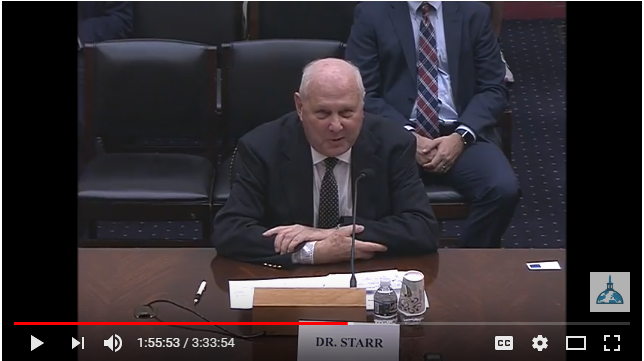CACI Forum and Full Recording: The Xinjiang Crisis and the Rest of Central Asia: Impacts and Responses
The Xinjiang Crisis and the Rest of Central Asia: Impacts and Responses
The Uyghurs of Xinjiang constitute one of the oldest Turkic peoples and the first to be urbanized and to develop a written language and rich intellectual life. As such they are, in a historic and cultural sense, part of Central Asia. The forum discussed how the ongoing crisis in Xinjiang affected Uyghurs, the Central Asian countries, and how Afghanistan, Kazakhstan, Kyrgyzstan, Tajikistan, Turkmenistan and Uzbekistan responded?
Speakers:
Sean R. Roberts, Associate Professor, George Washington University
James Clad, Director, Asian Security Program, American Foreign Policy Council
Ilshat Hassan, President, Uyghur American Association
Moderator: S. Frederick Starr, Chairman, Central Asia-Caucasus Institute at AFPC
Where: Middle East Institute: 1319 18th Street NW, 20036
When: Tuesday, March 26, 2019 from 12:00 - 2:00 pm,
Scroll Down for the Full Recording
CACI Forum - Reform in Uzbekistan: A Turning Point for Central Asia and Beyond
Reform in Uzbekistan: A Turning Point for Central Asia and Beyond
Scroll down for the video recording
Speakers:
S. Frederick Starr, Chairman, Central Asia-Caucasus Institute; co-editor, Uzbekistan’s New Face
H.E. Mr. Sherzod Shermatov, Minister of Public Education, Uzbekistan
Mr. Eldor Aripov, Director, Center for International Relations Studies, Tashkent
Moderator: Svante E. Cornell, Director, Central Asia-Caucasus Institute; co-editor, Uzbekistan’s New Face
Where: The National Press Club 529, 14th Street NW, 13th Floor, Washington, DC 20045
When: Thursday, Octobeer 4, 2018 from 3:00 - 4:45 pm
S. Frederick Starr Testifies at House Subcommittee Hearing on "Current Developments in Central Asia"
CACI Forum: Toward "Enlightened Islam"? Religion and the Secular State in Uzbekistan
Toward "Enlightened Islam"? Religion and the Secular State in Uzbekistan
Uzbekistan has remained staunchly secular and taken a firm stand against extremist movements since independence. In recent years, however, Uzbekistan’s policies have shifted from a defensive to a more proactive approach. The recent surge of reforms has affected the religious area as well. Uzbekistan has taken major steps toward the promotion of what President Shavkat Mirziyoyev terms “Enlightened Islam” at home and on the world stage.
This Forum was part of CACI’s ongoing research on the relationship between politics and religion in Central Asia and the Caucasus, and coincided with the release of the Silk Road Paper “Religion and the Secular State in Uzbekistan”, by Svante E. Cornell and Jacob Zenn.
Speakers: Svante E. Cornell, Director, Central Asia-Caucasus Institute at the American Foreign Policy Council
Moderator: Frederick Starr, Chairman, Central Asia-Caucasus Institute
Where: Middle East Institute: 1319 18th Street NW, 20036
When: Thursday, June 7, 2018 from 4:00 - 5:30 pm
Full Recording of the Forum Below:
CACI Event Invitation: Trans-Caspian Forum on Capitol Hill
Trans-Caspian Forum on Capitol Hill
The Trans-Caspian East-West Trade and Transit Corridor is a regional integrator, trade facilitator and viable transit connector between Europe and Asia. Comprising of Azerbaijan, Georgia and Turkey to the west, and Kazakhstan, Turkmenistan Uzbekistan and Afghanistan to the east of the Caspian Sea, this corridor brings together more than 200 million strong market and 400 billion in overall trade while connecting economies of the European Union and China along with access to Russia, Iran, Pakistan and India.
The Central Asia-Caucasus Institute invites you to join members of Congress, Congressional Staff and the delegates from the Trans-Caspian countries, to discuss emerging geopolitical importance of the bourgeoning energy and transportation network, as well as U.S. commercial interests arising from it.
Speakers:
Dr. Mohammad Humayon Qayoumi - Chief Advisor of the President of Afghanistan
Mr. Elmir Valizade - Deputy Minister of Transport and Communication, Azerbaijan
Mr. Genadi Arveladze - Deputy Minister of Economy and Sustainable Development, Georgia
Mr. Fatih Metin, Deputy Minister of Economy, Turkey
Deputy Minister of Investment, Kazakhstan (name TBC)
Moderator: Fred Starr, Chairman, Central-Asia Caucasus Institute at AFPC
Where: Rayburn House Office Building, Room 2167, 45 Independence Ave. SW 20515
When: Monday, May 17, 2018 from 9:30 am - 11:00 am
RSVP: Click HERE to register






